Table of Contents
Shopify is the most popular eCommerce web hosting platform that has powered over +3 million online stores globally. This massive popularity is thanks to Shopify’s ease of use, dedicated customer support, great built-in features, and many powerful apps.
Talking about Price on Performance (P/P), Shopify is good with flexible pricing plans and above-average built-in features. However, it’s not a one-size-fits-all solution. Besides the Pros, Shopify also has some Cons which can be quite off-putting for lots of merchants.
Herein lies a question: ‘Can I build an online store WITHOUT using Shopify?’. A big YES, you can! Here are the 8 best Shopify alternatives you might love to take a look at whether you want to launch your e-site from scratch or migrate from Shopify to another platform.
Why Looking for a Shopify Alternative?
There can be tons of reasons as to which merchants want to opt for another web-hosting platform. Below are the 4 biggest reasons why:
1. Extra transaction fees
One of the top causes that scare merchants away from Shopify is the so-called Shopify Payments, which is only available in some countries.
If you do not use Shopify Payments and choose another payment gateway instead, you are charged up to 2% per sale for extra transaction fees.
Besides additional transaction fees, by not using Shopify Payments, you’re not allowed to transact in multiple currencies unless you use an app (which costs some extra money)
2. Limited variants for each product
If you have a sophisticated catalog with many variants for each item, Shopify is then not your ideal solution.
Though you could add unlimited products to your store, it is the variant that Shopify puts a limit on. In particular, each product has a maximum of
- 3 variant types (e.g: size, material, color, etc.)
- 100 variants in total
To add more than 3 variant types and 100 variants for each item, you either have to upgrade to Shopify Plus or again, use a product management app.
3. Limited reports
Not until you upgraded to the Shopify plan at $79/month did you have useful information about how your online store is performing.
In more detail, Basic Shopify users don’t have access to sale reports, order reports, customer reports, profit reports, etc.
If you love to make data-driven decisions, then you either have to upgrade to Shopify plan, which you may not need, or use a profit tracking app.
4. Over-reliance on apps
As mentioned above, to bypass multi-currency issues, variant limitations, or report limits, you all need apps. And the demands for apps can be much more than that.
Now don’t get me wrong! Shopify’s apps are various, top-notch, and well-selected. This is because Shopify does review every app before it can be published on the Shopify App Store.
But the thing is you might bite off more than you can chew! Specifically, you may have to deal with application costs piling up day by day without you recognizing it in the nick of time.
5. SEO issues
Though Shopify can handle some basic SEO tasks, if you want to have full control over your website from A to Z then probably Shopify isn’t that great of a choice.
One of its SEO issues is fixed URL structure, which means you can’t customize them to the fullest as your intention.
In addition, you may find yourself struggling to create a sub-drop-down menu since it requires coding.
8 Best Shopify Alternatives in 2023
If Shopify doesn’t make for a great fit for your business, it’s not the end of the day. Take a look at the 8 best Shopify alternatives that you might love to invest in.
Shopify Alternative #1: BigCommerce
Best Suits: those who are on the growth, want to scale up their business and use their own payment gateway without being charged an extra fee.
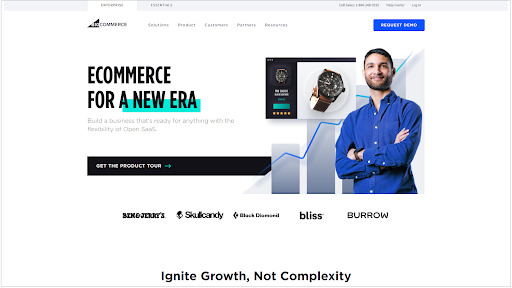
Founded in 2009, BigCommerce is now a major competitor of Shopify. Similar to Shopify, the hosted platform allows users to create and optimize their own eCommerce sites from scratch. With BigCommerce, you can sell on multiple channels, manage all things in one central hub.
Want to know some benefits when choosing BigCommerce over Shopify? First, you can be free to choose any payment gateway without being worried about additional fees like Shopify. In addition, you will also be able to add up to 600 variants for each product.
Pricing
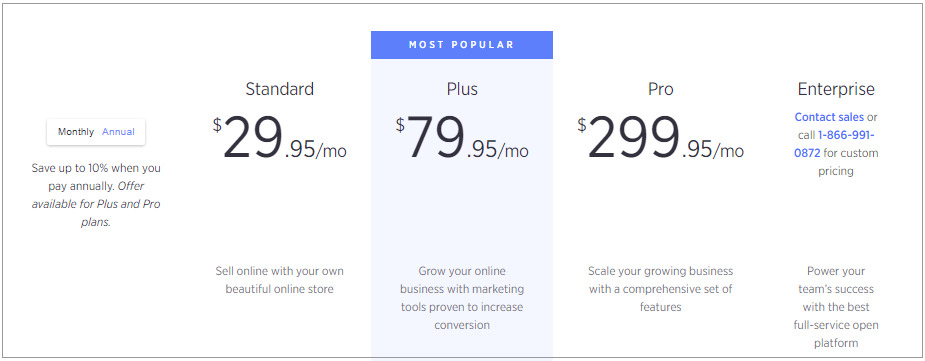
BigCommerce offers users with 3 packages, starting from $30 to all the way up to 300 monthly, with the most popular one being the Plus package at $80/month.
However, for Standard users, BigCommerce sets a limit on the annual sales at $50,000/year. If you exceed this limit, you’ll automatically upgrade to the Plus plan.
Pros ?
|
Cons ?
|
Shopify Alternative #2: WooCommerce
Best Suits: businesses that are well-attuned to WordPress who want to e-Commercialize their site with plug-ins & add-ons
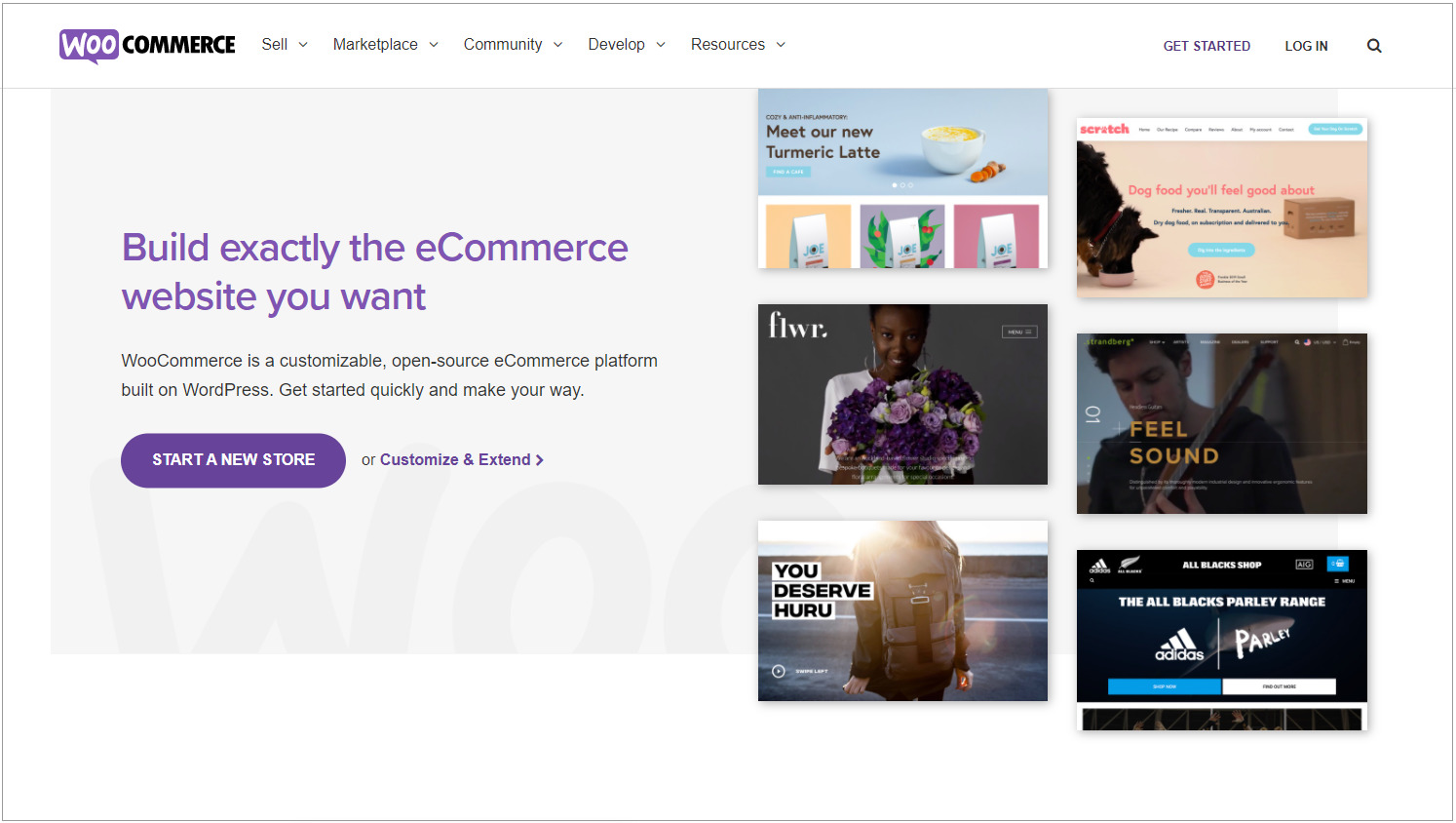
WooCommerce is an eCommerce plug-in for WordPress websites. At the present, it is one of the best alternatives for Shopify with over 1 million current users.
Though it should be noted that WooCommerce works differently from BigCommerce and Shopify. It is an open source for WordPress sites. That means you get WooCommerce like a WordPress plug-in to turn your blog into an online store.
And one of the perks you might enjoy while using WooCommerce is that you can add code, custom HTML, and CSS to touch up your website whatever you want to. Plus, you also have numerous extensions and add-ons to level up your WooCommerce store.
Pricing
As mentioned, it’s noticeable that while the WooCommerce plugin is free, you’ll still need to pay for hosting, an SSL certificate, and a domain.
Hosting varies in price, but it can end up costing around $30 per month, which is equivalent to the Shopify Standard plan that includes hosting.
To conclude, WooCommerce might not save you much money; however, if you’re familiar with WordPress, the plug-in could be a savage tool to optimize your website.
Pros ?
|
Cons ?
|
Shopify Alternative #3: Volusion
Best Suits: eCommerce SMEs seeking low transaction fees
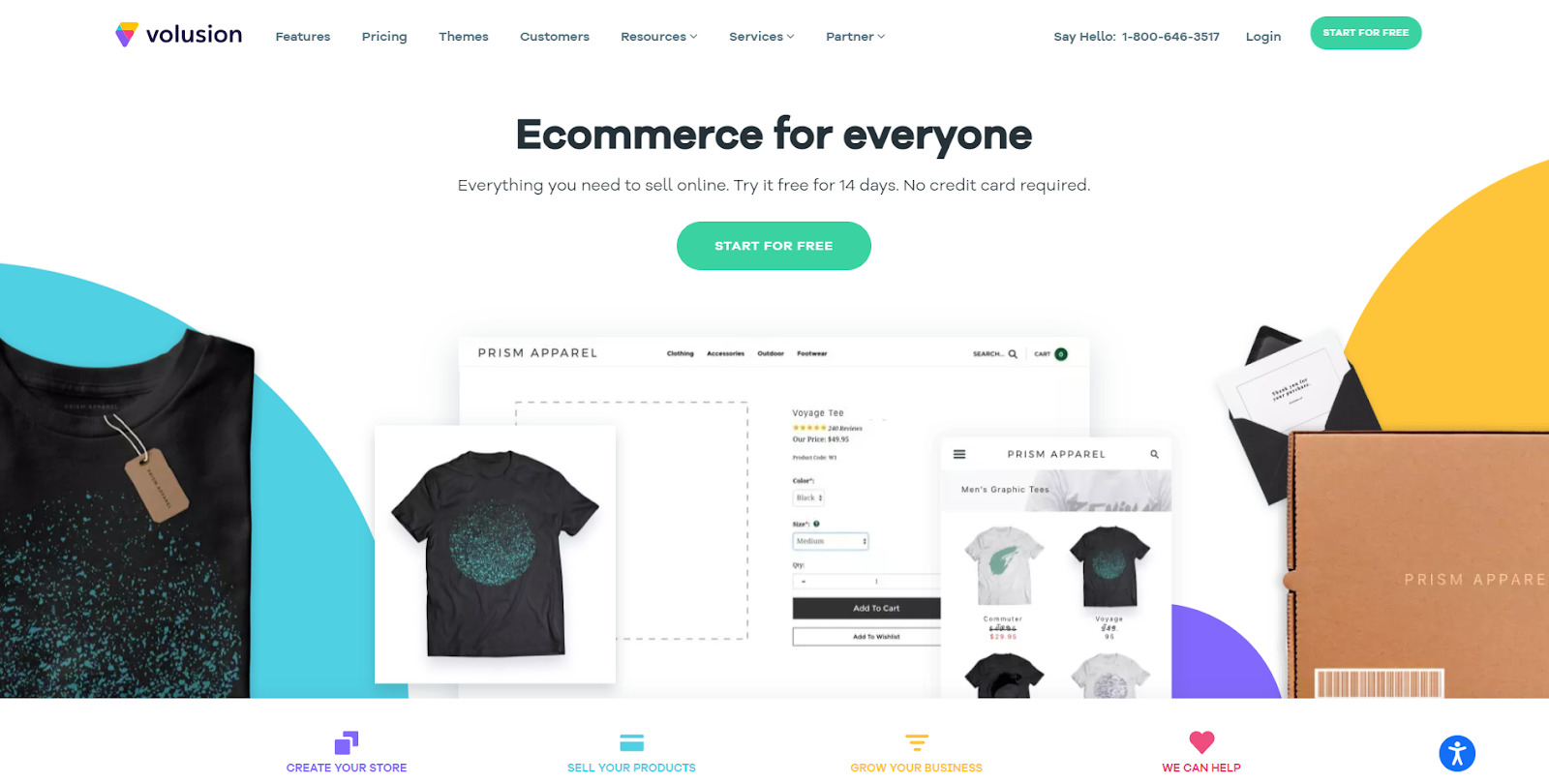
Perhaps you might not know this, Volusion was launched in 1999 and is one of the first platforms that empowered online business.
Similar to BigCommerce, Volusion doesn’t charge merchants additional fees for not using its payment gateway. In addition, when you choose the business plan at $299/month, you will also have Amazon and eBay integration.
Pricing

See the GMV Per Year? This stands for Gross Merchandise Value is one of the factors Volusion uses to decide its pricing plans. For further explanation, Volusion puts annual sale limits on each plan so if you make more than $100k per year then you have to pay for the Business plan at nearly $300 per month.
Besides the GMV metric and the features, Volusion limits the products of each plan as well. You can only add unlimited products to your store only when you pay $299 per month to use the Business Plan.
Pros ?
|
Cons ?
|
Shopify Alternative #4: Squarespace
Best Suits: small brands that need a stunning website to accentuate their products

Squarespace is a web-builder platform that allows users to start a blog or run a business. What makes Squarespace one of the top Shopify alternatives is its gorgeous web designs. In particular, it offers a powerful website builder and a wide variety of stunning themes.
If you’ve been searching for an eCommerce web builder that lets you sell unlimited products online, Squarespace is perhaps the answer.
Although Squarespace doesn’t charge additional fees, its payment processors are confined to only PayPal, Stripe and Apple Pay only.
Pricing

In comparison to Shopify, Squarespace has more various packages, which range from $19 to $65 per month. Additionally, users can choose to save more costs by purchasing annually. However, you can only unlock full eCommerce features with the Advanced Commerce plan at $65/month/
Although there is a personal plan which only costs you $19 per month, note that this plan comes up like a blogging site, not an eCommerce store.
Pros ?
|
Cons ?
|
Shopify Alternative #5: Wix
Best Suits: those who are new in the field but want to fully optimize their sites

Wix was established in 2006. Just like Volusion, Wix is most suitable for small businesses. The web development company is one of the direct Shopify alternatives for its affordable pricing plans, ease of use, and many beautiful free templates.
Moreover, Wix also offers highly customizable theme options, and a sleek editor makes it a go-to solution for newbies who want to get complete control over their website. However, Wix’s app store only features 280 apps, which is much more limited compared to Shopify.
Pricing

Wix pricing plans are categorized into 2 groups – the blogging website and the eCommerce ones. Since this blog is about Shopify alternatives, we’re going to look at the latter only.
As of writing this article, it is so clear that Wix’s 3 packages are significantly cheaper than Shopify’s packages. The VIP package only costs you a mere $35 monthly. If your business is rather small and you want to stay on a tight budget, give Wix a try then.
However, Wix poses limits on storage space with only 20GB of images, video, etc. for the business basic. Plus, you have to upgrade to Business Unlimited Plan in order to sell products on marketplaces such as Amazon or eBay.
Pros ?
|
Cons ?
|
Shopify Alternative #6: Shift4Shop (previously 3Dcart)
Best Suits: businesses that want to have utter flexibility regarding payment gateways and inventory management
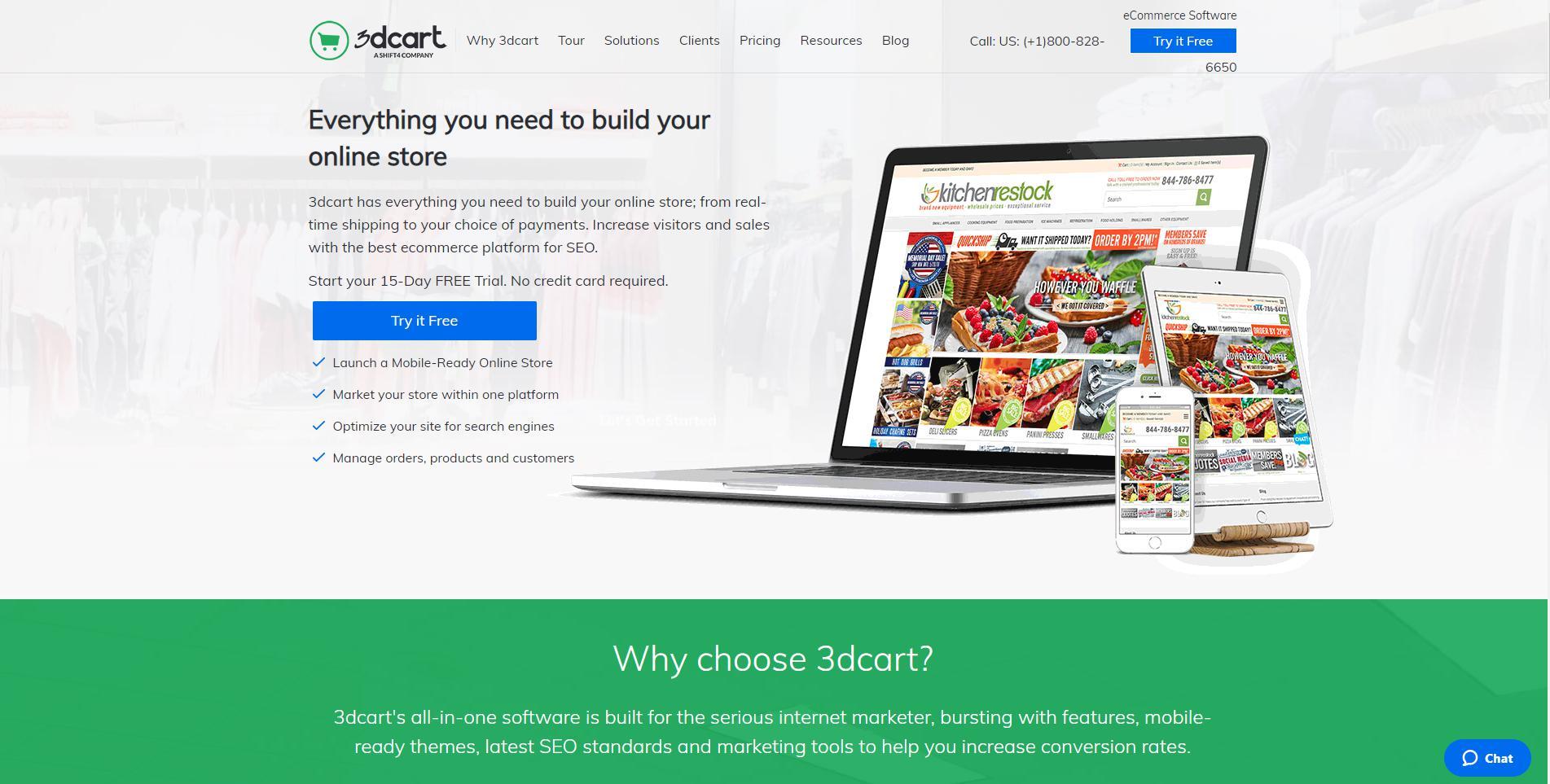
Shift4Shop is previously known as 3DCart, is one of the website builder platforms which has existed in the eCommerce market since 1997.
This privately owned eCommerce solution empowers merchants to build up their websites and boost their sales from scratch regardless of scope or industry. This is thanks to its flexible pricing plans, lots of sales and marketing features.
3Dcart is highly reputed as one of Shopify’s fierce alternatives due to its inventory management and wide range of payment methods.
Pricing
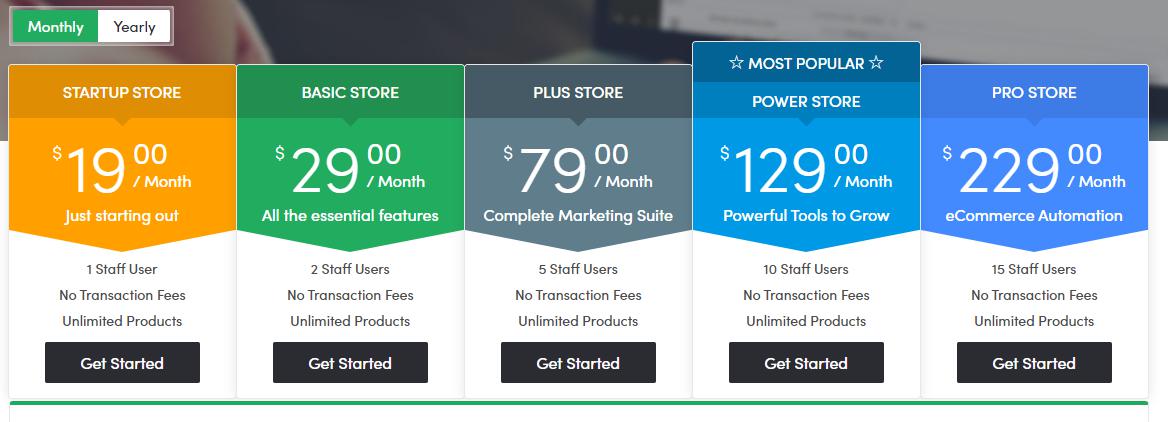
Shift4Shop offers quite flexible pricing plans, ranging from $19/month all the way to $229/month, which will buy unlimited product storage, basic SEO features, email cart recovery, and many other eCommerce features you need to run your online store like a well-oiled machine.
Pros ?
|
Cons ?
|
Shopify Alternative #7: Weebly
Best Suits: small businesses that want to stay on a really tight budget
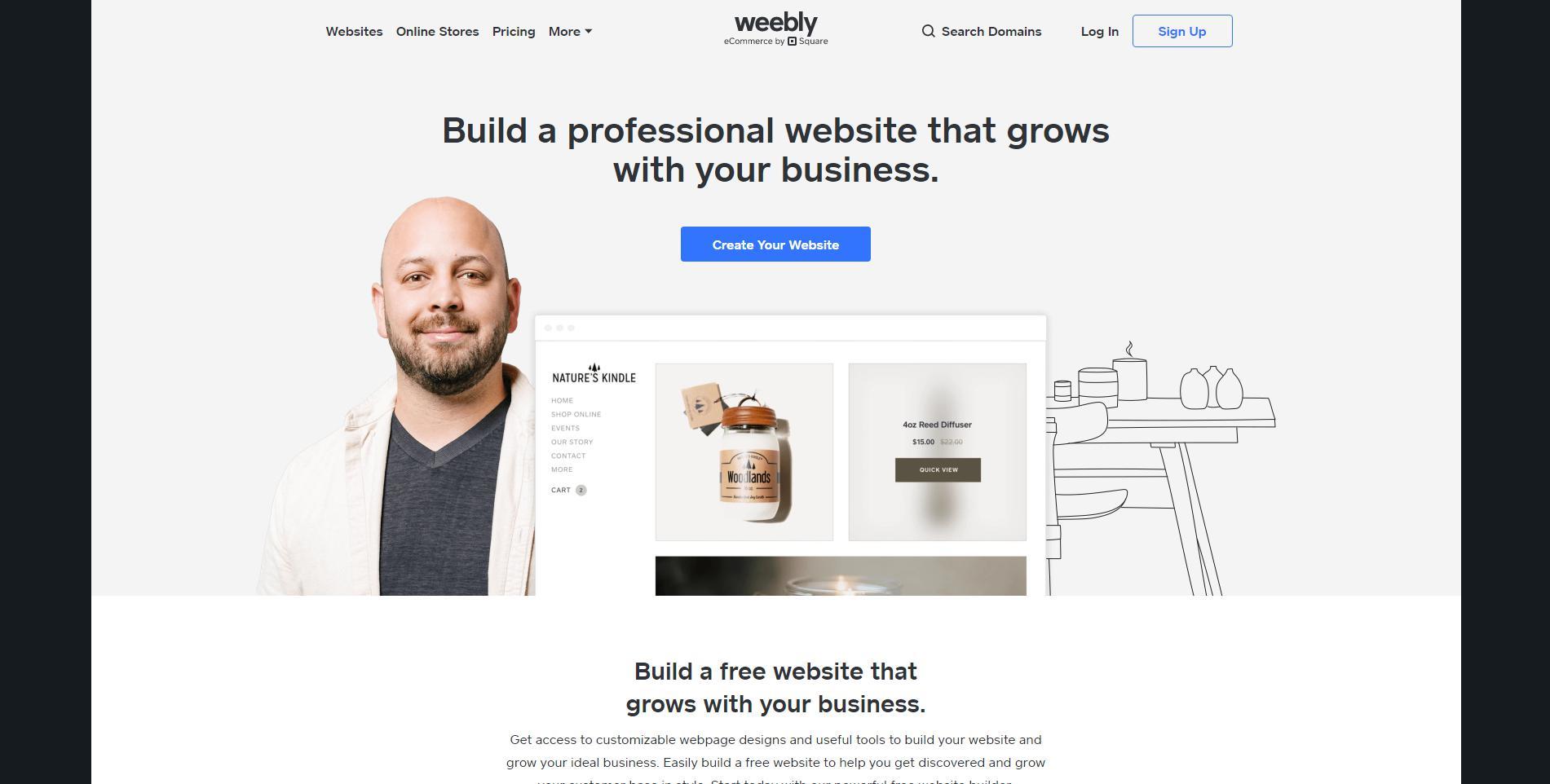
Weebly is a web hosting service founded in 2006 which is acquired by Square Inc in 2018. The platform is known as one of Shopify’s less expensive alternatives for its lowest cost in the eCommerce service marketplace.
Pricing
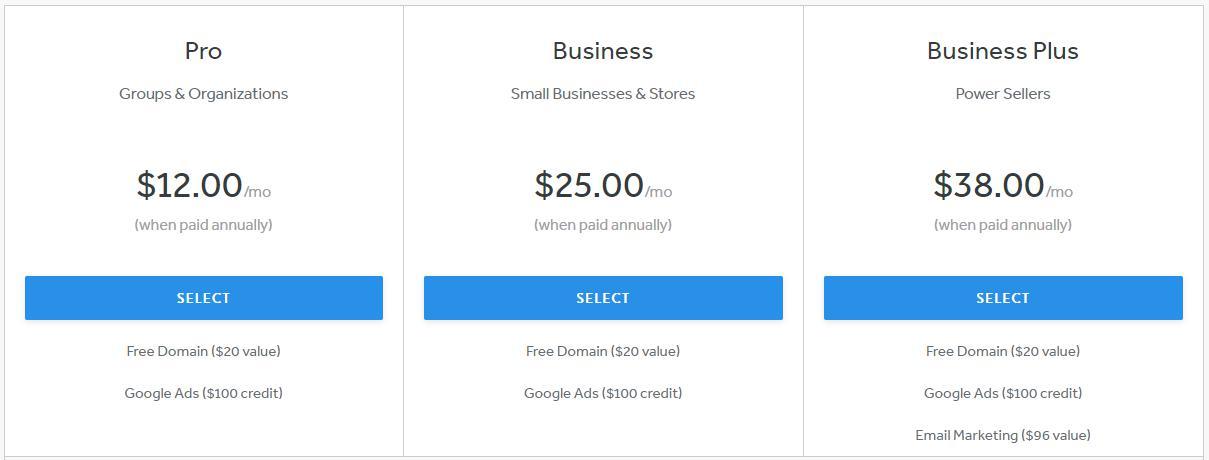
As of writing this article, it’s clear that the pricing packages of Weebly are significantly cheaper than Shopify when they only range from $12 to $38 per month.
However, considering its limited sales tools and customization, Weebly is only appropriate for merchants who have just dipped their toes on the game.
Pros ?
|
Cons ?
|
Shopify Alternative #8: BigCartel
Best Suits: small businesses with simple product catalogs that just jump in online sales and want to choose a wallet-friendly platform
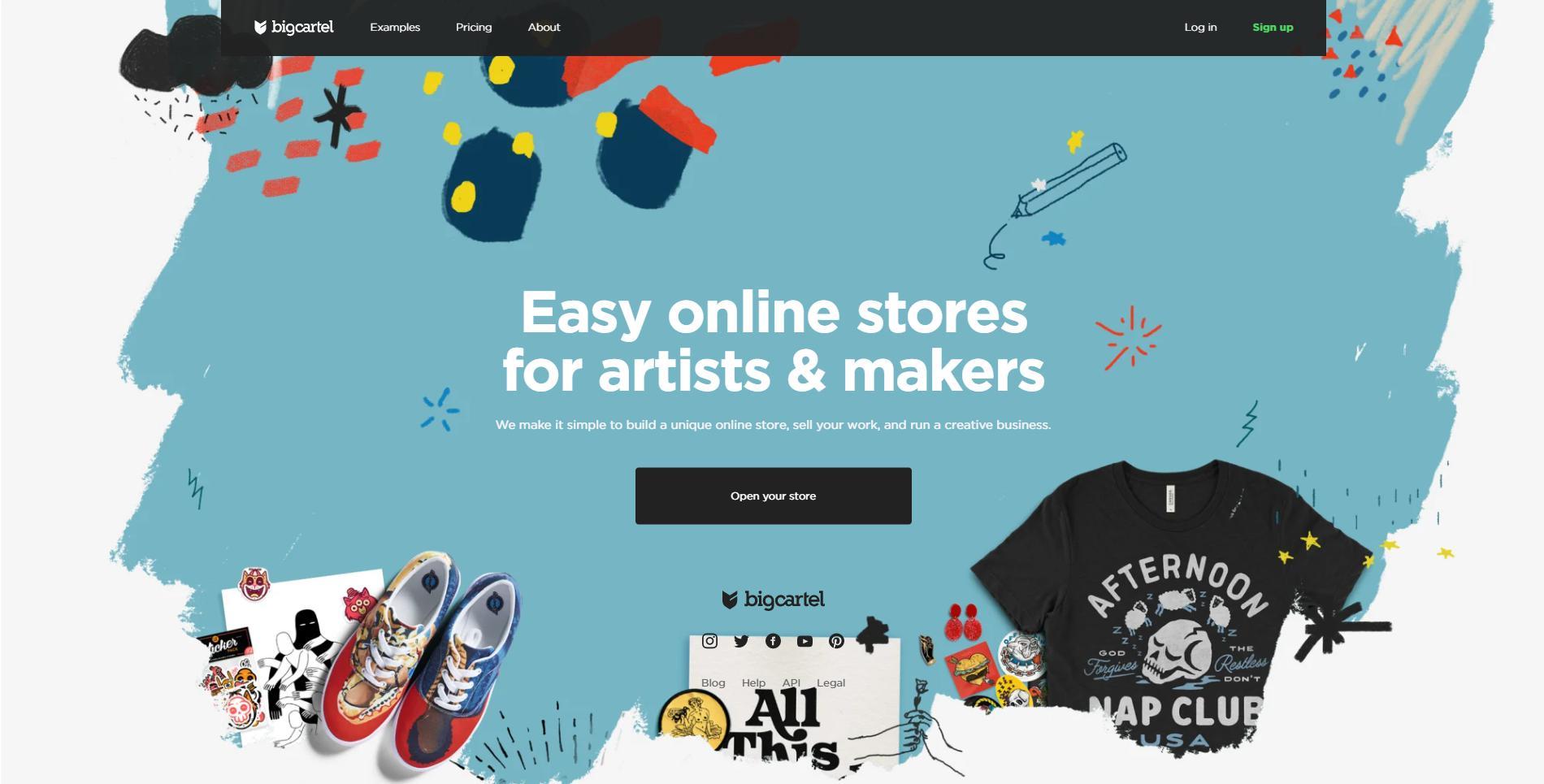
BigCartel is a fully-hosted software that empowers small brands to get entry to eCommerce without worrying about being eaten up by extra fees.
Though BigCartel’s features are more limited than Shopify, its low-cost pricing strategy makes Big Cartel a worth-trying Shopify alternative.
Pricing

It’s noticeable that the highest plan of Big Cartel is equal to the basic plan of Shopify. Additionally, if you sell up to only 5 products, you can do it for totally free. Thus, Big Cartel is nothing but a perfectly cost-effective choice for small businesses with a simple product catalog.
Pros ?
|
Cons ?
|
Final thoughts
We know you might get overwhelmed to decide on which one to try among dozens of Shopify alternatives. That’s why we narrow the list down to these 8 Shopify alternatives for you. We hope it can help you find a solution that hits all the right notes- needs, skills, and budgets.


